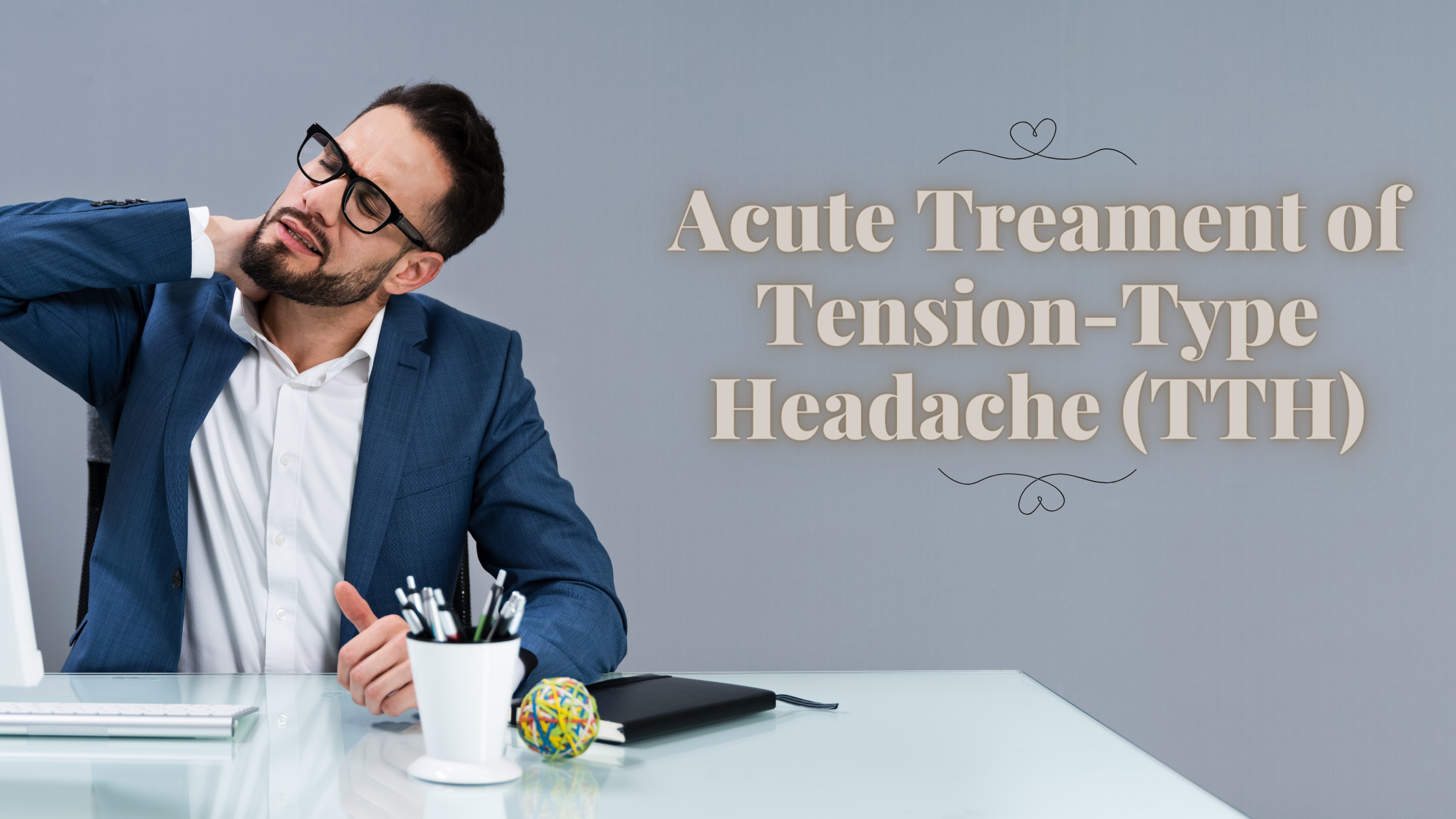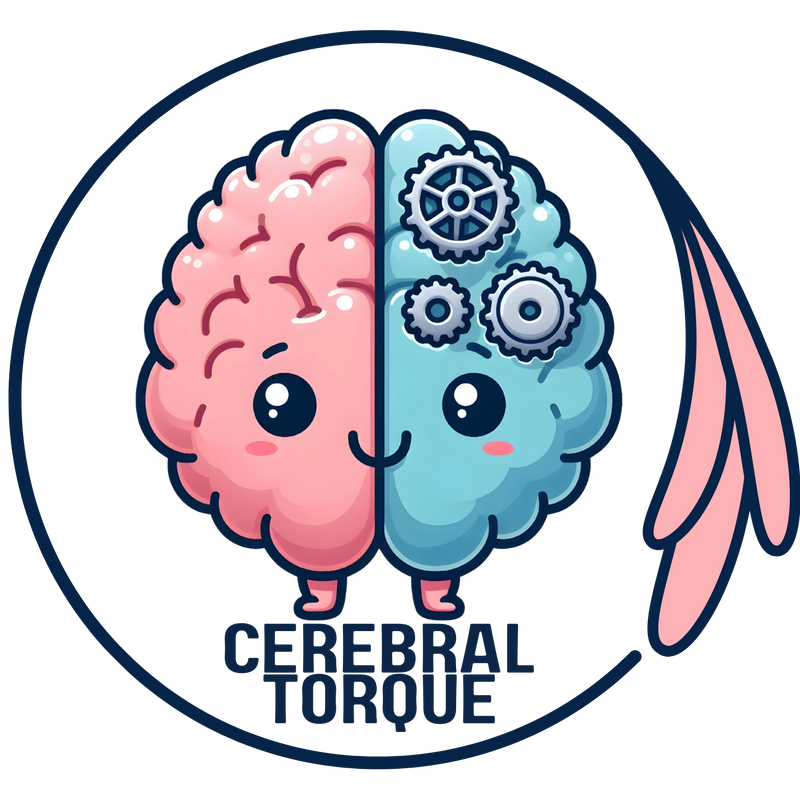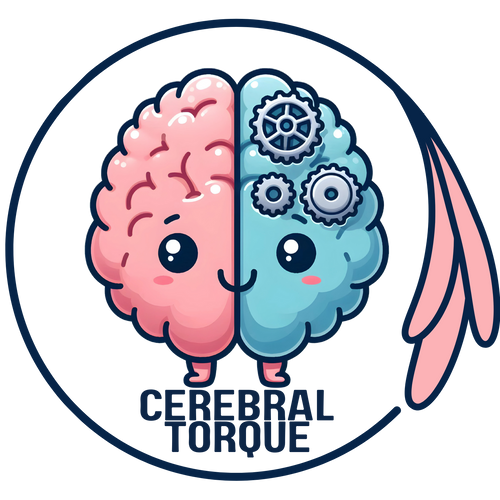Acute Treament of Tension-Type Headache (TTH)
Posted on October 04 2022,

This post is for educational purposes only and may contain errors. Please talk to your neurologist.
Studies aren’t as ubiquitous for tension-type headache (TTH) acute treatment as they are for migraine treatment.
Due to this, we draw some conclusions from the studies on migraine treatment. For example, it is theorized that taking abortive therapy early in the treatment of TT will result in a better outcome than if abortive therapy was given later during the condition due to studies with abortive therapy and migraines.
There are a few principles that are important in terms of treating TTH:
- As you have read earlier, the earlier the treatment, the better (we think).
- Start with the highest dose of the medication of choice to limit having to take more doses later (Again, we think. It is likely more variable and dependent on the patient’s response to said medication).
- Simple analgesics have little to no benefit with chronic TTH. That is episodes of≥ 15 days per month on average for ≥ 3 months (≥ 180 days per year). Episodic TTH often becomes chronic.
- It is important to limit the frequency of analgesic use due to medication overuse headache. More on this here: https://www.cerebraltorque.com/blogs/migranews/medication-overuse-headache-moh-treatment-has-changed-mots-medication-overuse-treatment-strategy-trial
First-line therapy:
NSAIDs > Acetaminophen due to effectiveness (some experts consider acetaminophen to be first line). Choice should be made based on comorbid conditions and/or pregnancy (where acetaminophen is the drug of choice).
NSAID agents include:
- Ibuprofen 200 or 400 mg
- Naproxen 220 or 550 mg
- Aspirin 650 to 1000 mg
- (not available OTC) Ketoprofen 25 or 50 mg
- (alternative) diclofenac 25 to 100 mg
Acetaminophen, the initial therapy of TTH for pregnancy, is taken as a single dose of 1000 mg.
To determine treatment effectiveness, employ migraine criteria. See: https://pubmed.ncbi.nlm.nih.gov/25139586/
In case of treatment failure, consider other potential possibilities (i.e., wrong diagnosis, medication overuse headache, etc.)
Consider cervicogenic headache if the pain is unilateral. Consider migraine without aura. Consider medication overuse headache if simple analgesics were taken >15 days/month or combination analgesics or triptans for > 10 days/month. Consider other types of headaches.
Second-line therapy:
Combination analgesics containing caffeine. (Most popular OTC is Excedrin).
For clinical setting (parenteral medications):
- Metoclopramide
- Metoclopramide plus diphenhydramine
- Chlorpromazine
- IM ketorolac
Combination analgesics containing butalbital and codeine are not recommended
Muscle relaxants are not recommended. No good randomized controlled trials evaluating muscle relaxants for the treatment of tension-type headache. They are also not considered effective and have a risk of dependence.
https://pubmed.ncbi.nlm.nih.gov/20482606/
Triptans
TTH occurring in migraineurs may respond to triptans.
Wed, Jan 14, 26
New Emergency Department Migraine Treatment Guidelines
The American Headache Society (AHS) has released its 2025 guideline update for the acute treatment of migraine in adults presenting to the emergency department. This update, published in Headache in...
Read MoreSun, Jan 04, 26
Long-Term Safety of Anti-CGRP Monoclonal Antibodies
A comprehensive meta-analysis of over 4,300 patients reveals that erenumab, galcanezumab, fremanezumab, and eptinezumab maintain good tolerability beyond 12 months. Only 3% of patients stopped treatment due to adverse events,...
Read MoreThu, Jan 01, 26
Alternate Nostril Breathing Protocol for Migraine
Alternate nostril breathing is a simple yogic technique that's showing real promise for migraine prevention. Unlike acute treatments, this practice builds nervous system resilience over time - making attacks less...
Read More


